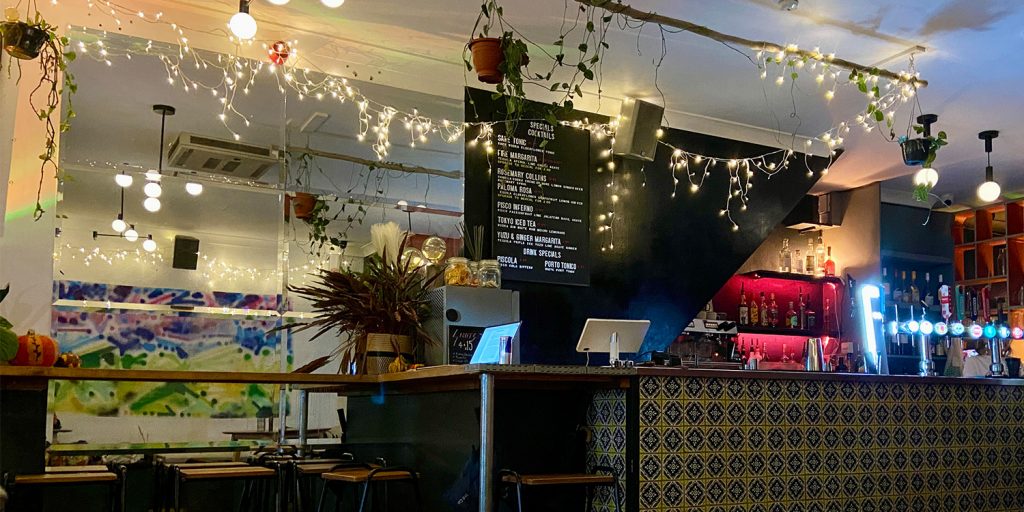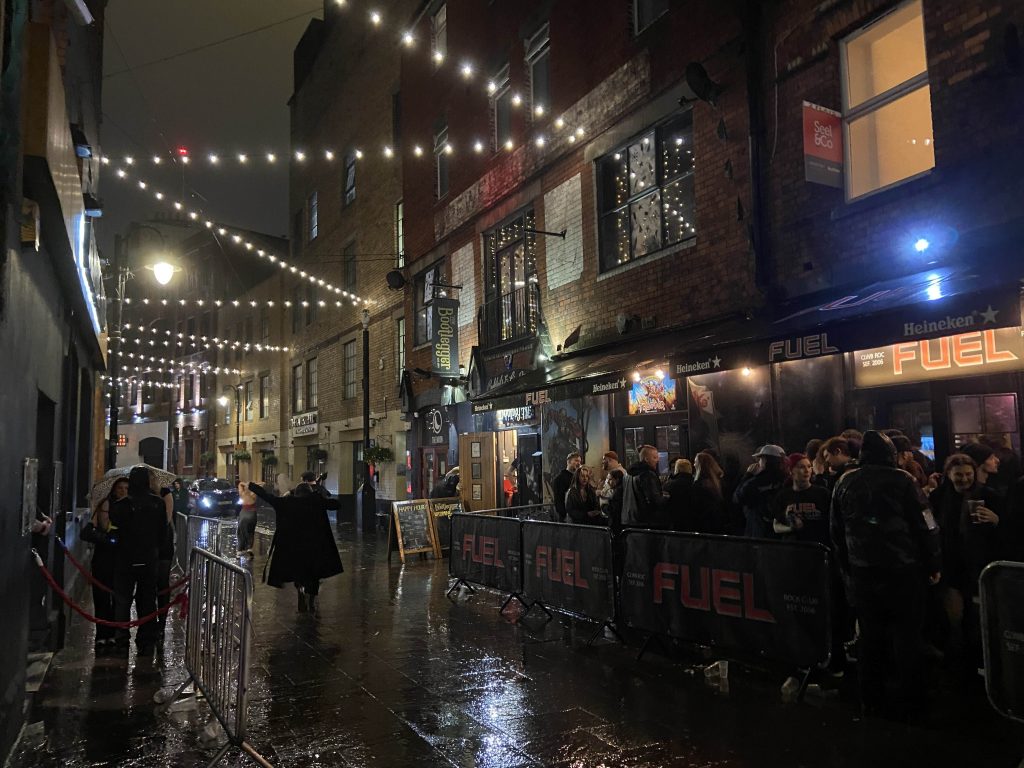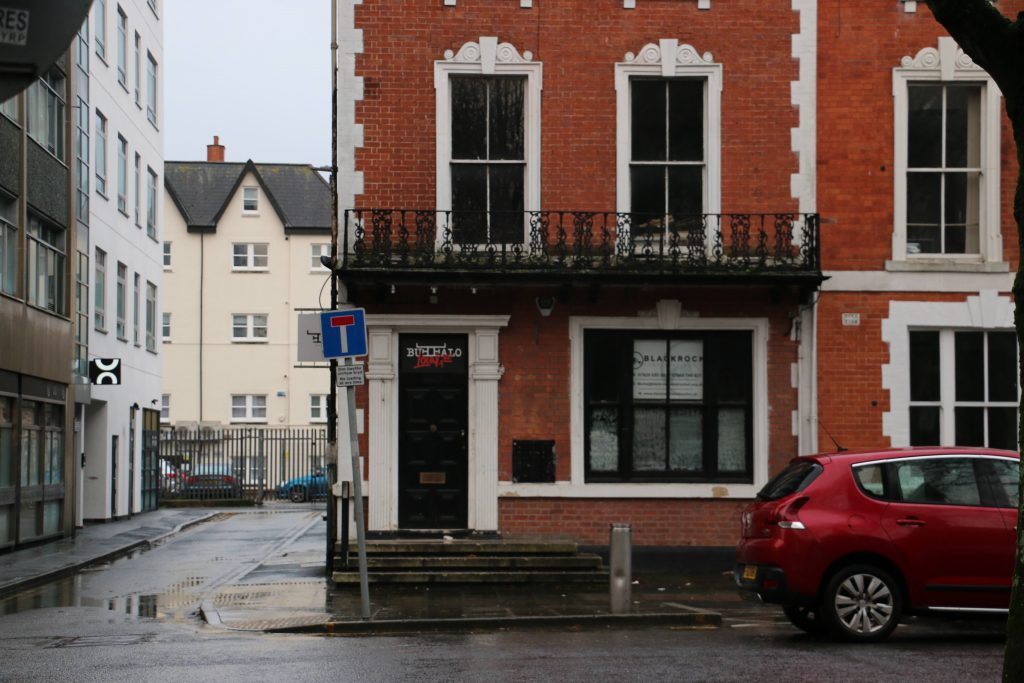In 2024, three nightclubs shut across the UK every week. Could we be facing a clubbing extinction by 2029?

On a typical weekend evening, Caroline Street in Cardiff city centre is a haven for tipsy locals craving cheesy chips and drunken strangers sitting and chatting with each other on sticky pavements. They’re connected by a serotonin-filled release experienced after clubbing, filtering in from nearby neon-illuminated nightclubs. But by 2029, these club-goers could be extinct.
The Night Time Industries Association has stated that three nightclubs closed their doors every week during 2024, with Wales losing 41% of its clubs since June 2020. On this trajectory, nightclubs may be extinct by October 2029.
Nightlife is the booze-stained cultural capital of the government. DJs, security personnel, promoters, artists and clubbers alike contribute £36.4 billion to the UK economy every year. But without them, they leave a cultural and economic gap which can’t be reductively replaced by another Wetherspoons.
Another vacant space
Nightclub and grassroots venue closing announcements are becoming as common in Cardiff as the number of plastic cups and vape stickers which decorate their exteriors. In November, alternative venue The Moon closed its doors one final and emotional time. Trademarked by its greasy, raw glamour, The Moon’s residency lasted seven years. Its closure left a silent space on Womanby Street and saw another home for underground music fans lost to financial pressures.
Ed Townend, former technical manager and promoter of The Moon, was shocked by the announcement. “I think there was a real lack of engagement in some of the stuff that we were doing sometimes, but there was also understandably, I think, a reluctance over the past couple of years for people to go out more. And I think that’s not just an us problem. I think that’s an everywhere problem” he said.
View some of the nightclubs surviving closures alongside the spaces lost in Cardiff’s nightlife:
The cultural landscape of clubbing has heightened concerns of safety, particularly for marginalised genders and sexualities. In 2014, one in four women aged 18-24 had been sexually harassed during a night out in Wales, according to Drinkaware. Ten years later, South Wales Police claim there’s been a 30% reduction in reported sexual assaults on nights out in Cardiff between 2023-2024 through new policing frameworks trying to directly tackle nightlife safety standards. While the approach is a positive step in encouraging people to enjoy Welsh nightlife, it may be coming too late to offset nightclub closures, some DJs have argued.
An end to new talent
When clubs close down, as do the opportunities for emergent artists.
Soul DJ Sarah Sweeney has been working across Cardiff for the last 15 years, performing at venues that were forced to shut their doors: ”The clubs of Cardiff have and always will be vital to the cultural offering of the city.”
”Obviously, large-scale events are always a draw to the city, but the underground small clubs have been a fertile ground for music to be created and discovered, with many now household names having passed through and earned their touring stripes. They are community hubs, safe spaces — places of expression, connection and inner freedom. The only other spaces that provide this are places of worship” Sweeney added.
Nightclubs have always evolved throughout history, matching the rhythm and interests of changing audiences over time. For artists to survive these changes, they need to think ahead of both listener and market changes.
We shouldn’t have to charge a tax on people to enjoy culture
-Ed Townend, The Moon
Molly Palmer, presenter and BBC Radio Wales DJ, has experienced firsthand the impacts of nightclub closures when entering the industry: ”In recent years, we have been losing venue after venue, which means there are less spaces for us to work in and an increasingly competitive work field.”
“If the loss of these incredibly important venues continues, we can kiss goodbye the music culture of the city. This includes club-night culture and grassroots music” Palmer noted.


A loss for listeners
Dr Lucy Bennett, music lecturer at Cardiff University, agrees: “Nightclubs are so important for music communities, since they allow people to come together on the dance floor and share a space together, while listening and moving their bodies to music. The shared dance floor can be such an important place of escapism, connection, and an individual and collective immersion into the music. It can be a very powerful space.”
Music fans, however, may be finding that the power in dance and expressions is no longer limited to drunken dancefloors, with many choosing to stay at home or visit nightlife venues without drinking alcohol. 89% of young people in Wales are taking proactive steps to manage their alcohol consumption, severing a major financial lifeline for nightlife venues.
Townend said: “I think some people who might not understand the economics of the music venues say ‘Well, why does that matter? Surely, you just get enough on ticket sales?’. But that’s not how it works. The majority of the money coming into a music venue, unfortunately, is based on alcohol.”
Move over Charli XCX! For my latest @alt_cardiff feature piece I investigated the rate that nightclubs have been shutting across the UK 🎶 pic.twitter.com/1O2h2dE8CK
— Alanya (@Alanya028) December 12, 2024
The palliative treatment of nightlife venues isn’t limited to clubs. It features as part of a wider decline in economic music growth across the UK, with ticket sales, grassroots music venues and late-night safety at crisis point.
“While traditional clubbing as we know it may face significant challenges, it’s also possible that the scene will evolve rather than disappear entirely,” Bennett added, “smaller, more intimate gatherings could replace the big clubbing scene we’re used to.”
A variety of events are being hosted by nightlife venues around Cardiff during the winter season. This winter, your dancing could save a (night)life.

Plan your next night out
Cardiff’s music connoisseurs share the best nightclubs you should be visiting:
Lucy, Music Lecturer: For me, my favourite nightclub in Cardiff is Metros, which is an alternative music nightclub in Morgan Quarter. My favourite memory is running to the dancefloor when they played Helicopter by Bloc Party, dancing with my friend, singing along, and connecting with others in this shared space.
Molly, Pop DJ: There are so many that offer different things! My personal favourite as a punter is Fuel on Womanly Street – I’m yet to have a bad night out there, I absolutely love it. If you are looking for a variety of music all sandwiched under one roof across three floors, then Clwb Ifor Bach is the one for you.
Sarah, Soul DJ: If you like your experimental jazz, disco and house, places like Paradise Garden, Clwb Ifor Bach, The Globe and Trashed are great.
